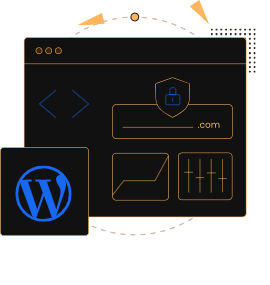Introduction: DMCA (Digital Millennium Copyright Act) ignored hosting has become a popular choice for website owners who want to avoid copyright infringement claims and maintain control over their content. This type of hosting provider claims to ignore DMCA takedown requests, allowing websites to host potentially copyrighted material without the risk of immediate removal. In this guide, we'll delve into what DMCA ignored hosting entails, its benefits, potential drawbacks, and factors to consider before choosing such a service.
1. Understanding DMCA Ignored Hosting:
Definition: DMCA ignored hosting refers to hosting services that claim to ignore DMCA takedown requests related to copyrighted content. This means they won't take down your website or content based solely on DMCA complaints.
Purpose: Website owners, especially those who deal with user-generated content or file-sharing services, may opt for DMCA ignored hosting to protect their site from being taken down due to copyright claims.
Legal Implications: While these hosting providers claim to ignore DMCA requests, it's essential to note that this does not mean hosting copyrighted material is legal. Website owners are still responsible for the content they host and can face legal action if found infringing on copyrights.
2. Benefits of DMCA Ignored Hosting:
Content Freedom: Website owners have more freedom to host a wider range of content without the fear of immediate takedowns.
Protection from DMCA Notices: Websites hosted on DMCA ignored servers are less likely to face sudden takedowns or interruptions due to DMCA complaints.
Privacy: Some DMCA ignored hosting providers offer enhanced privacy features, such as anonymous registration and offshore servers.
3. Potential Drawbacks:
Legal Risks: Hosting copyrighted material without permission is still illegal and can lead to legal consequences, even if the hosting provider claims to ignore DMCA requests.
Reputation: Websites hosted on DMCA ignored servers may gain a reputation for hosting infringing content, which could affect their credibility and trustworthiness.
Limited Support: Some DMCA ignored hosting providers may offer limited customer support due to the nature of their services.
4. Factors to Consider Before Choosing DMCA Ignored Hosting:
Legal Compliance: Understand the legal implications of hosting potentially copyrighted material. Ensure you have the right to host the content or risk facing legal action.
Type of Content: Consider the type of content you intend to host. If it's user-generated or involves file-sharing, DMCA ignored hosting might be more suitable.
Privacy Concerns: If privacy is a concern, look for DMCA ignored hosting providers that offer enhanced privacy features such as offshore servers and anonymous registration.
Reputation and Uptime: Research the reputation and uptime of the hosting provider. Opt for a reliable provider with a good track record.
Customer Support: Consider the level of customer support provided. While DMCA ignored hosting may have limitations, ensure the provider offers adequate assistance when needed.
Cost: Compare the costs of DMCA ignored hosting with other hosting options. Ensure you're getting value for the features provided.
5. Popular DMCA Ignored Hosting Providers:
Njalla: Known for its focus on privacy and offshore hosting, Njalla offers DMCA ignored hosting with anonymous domain registration.
OffshoreDedicated: This hosting provider offers offshore servers in locations with lax copyright laws, claiming to ignore DMCA notices.
FlokiNET: FlokiNET provides offshore hosting in Iceland and Romania, with a focus on privacy and ignoring DMCA requests.
6. Conclusion: DMCA ignored hosting can provide website owners with more flexibility and protection when it comes to hosting potentially copyrighted material. However, it's crucial to understand the legal implications and risks associated with this type of hosting. Website owners must ensure they have the right to host the content and are prepared to handle any legal consequences. Before choosing DMCA ignored hosting, carefully consider factors such as legal compliance, type of content, privacy concerns, reputation, customer support, and cost. By making an informed decision, website owners can navigate the complexities of hosting copyrighted material while mitigating risks.
For more info. visit us:





Comments